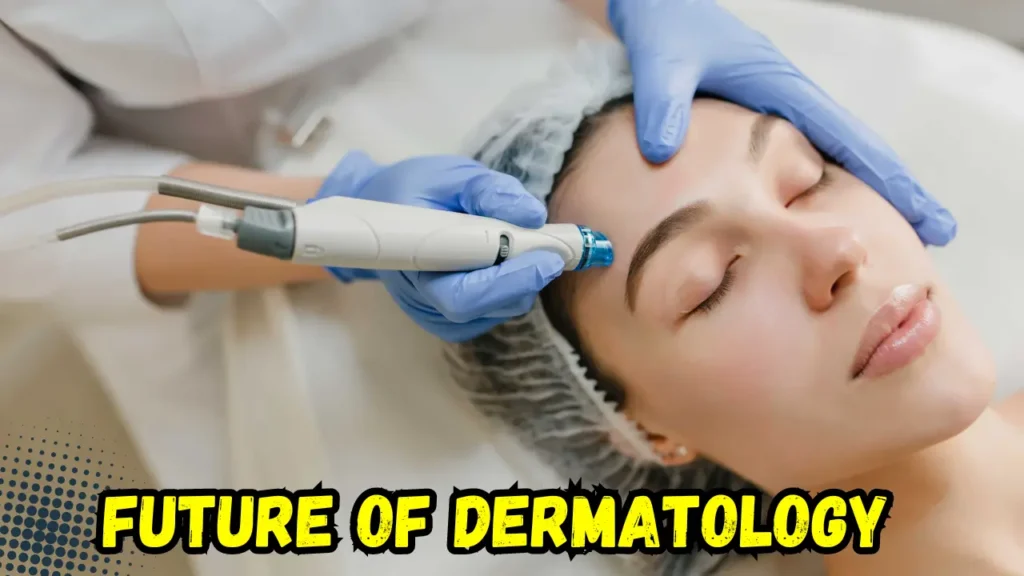Scope of Dermatology in Pakistan
Introduction
Dermatology, the branch of medicine that deals with the skin, hair, and nails, plays a vital role in healthcare. The skin, being the largest organ of the body, often reflects the overall health of an individual. In Pakistan, dermatology has gained significant importance due to the increasing prevalence of skin diseases and the growing awareness about skin health.
History of Dermatology in Pakistan
Early Developments
The journey of dermatology in Pakistan began soon after the country’s independence. Initial efforts were modest, with only a handful of dermatologists practicing in major cities. However, the need for specialized skin care quickly became apparent.
Milestones in Dermatological Research
Over the decades, Pakistan has seen notable advancements in dermatological research. Local researchers have contributed significantly to global dermatology literature, particularly in areas like tropical dermatology and pigmentary disorders, which are more prevalent in South Asia.

Current Scope of Dermatology in Pakistan
Prevalence of Skin Conditions
Skin conditions such as eczema, psoriasis, acne, and fungal infections are common in Pakistan. The climate, socio-economic factors, and genetic predispositions contribute to the high prevalence of these conditions.
Demand for Dermatologists
The demand for dermatologists in Pakistan is on the rise. With increasing awareness about skin health and aesthetic procedures, more people are seeking professional help for their skin issues. This demand extends to both medical and cosmetic dermatology.
Public Awareness and Education
Public awareness about skin health is growing, thanks to media, social networks, and healthcare campaigns. Educational initiatives are helping people understand the importance of early diagnosis and treatment of skin conditions.
Educational Pathways in Dermatology
Undergraduate Programs
In Pakistan, the journey to becoming a dermatologist begins with an MBBS degree, which is a five-year undergraduate program. This is followed by a one-year house job (internship) in a clinical setting.
Postgraduate Specializations
After completing the MBBS, aspiring dermatologists can pursue postgraduate specializations such as FCPS (Fellowship of the College of Physicians and Surgeons) in Dermatology, MD (Doctor of Medicine) in Dermatology, or equivalent programs.
Continuous Medical Education
Continuous medical education (CME) is crucial for dermatologists to stay updated with the latest advancements. Various institutions and professional bodies offer CME opportunities through workshops, conferences, and online courses.

Best Universities Offering BS Dermatology in Pakistan
King Edward Medical University
One of the oldest and most prestigious medical schools in Pakistan, King Edward Medical University offers a robust dermatology program. The university is renowned for its experienced faculty and comprehensive clinical training.
Allama Iqbal Medical College
Allama Iqbal Medical College is another top choice for aspiring dermatologists. The college has state-of-the-art facilities and a strong emphasis on research and practical experience.
Dow University of Health Sciences
Dow University in Karachi is known for its modern curriculum and extensive clinical exposure. The university’s dermatology department is equipped with the latest technology and offers a wide range of treatments.
Aga Khan University
Aga Khan University stands out for its international standards of education and research. The university’s dermatology program is highly competitive and offers excellent opportunities for clinical practice and research.
Fatima Jinnah Medical University
Fatima Jinnah Medical University is a leading institution for women in medical education. The university offers a comprehensive dermatology program with a focus on both theoretical knowledge and practical skills.
Career Opportunities in Dermatology
Clinical Practice
Most dermatologists in Pakistan work in clinical practice, either in hospitals or private clinics. They diagnose and treat a variety of skin conditions, ranging from common issues like acne to more complex diseases like melanoma.
Academic and Research Roles
For those inclined towards teaching and research, there are ample opportunities in medical universities and research institutions. Academic roles involve training the next generation of dermatologists and conducting research to advance the field.
Opportunities in the Cosmetic Industry
The cosmetic industry in Pakistan is booming, offering numerous opportunities for dermatologists. This includes working in cosmetic clinics, developing skincare products, and performing aesthetic procedures like Botox and laser treatments.

Challenges in the Field of Dermatology in Pakistan
Limited Resources
One of the major challenges is the limited resources available for dermatological care, especially in rural areas. Access to advanced treatments and medications can be restricted due to economic constraints.
Access to Advanced Treatments
While urban centers may have access to the latest dermatological treatments, rural and remote areas often lack these facilities. This disparity affects the overall quality of dermatological care in the country.
Professional Recognition and Support
Dermatologists in Pakistan often face challenges related to professional recognition and support. There is a need for more robust professional bodies and associations that can advocate for the rights and needs of dermatologists.

The Future of Dermatology in Pakistan
Technological Advancements
The future of dermatology in Pakistan looks promising with technological advancements such as telemedicine, AI-driven diagnostics, and advanced treatment modalities. These innovations are set to revolutionize the field and improve patient care.
Potential for Growth
The growing awareness about skin health and the increasing demand for dermatological services indicate a significant potential for growth. The field is likely to expand, offering more opportunities for professionals and better care for patients.
Role of Telemedicine
Telemedicine is emerging as a crucial tool in dermatology, especially in remote areas. It allows dermatologists to consult with patients via digital platforms, making skin care more accessible to those who cannot travel to urban centers.
Conclusion
Dermatology in Pakistan has come a long way, with significant advancements in education, clinical practice, and research. Despite the challenges, the future looks bright with technological advancements and growing public awareness. As the field continues to evolve, it promises better care and numerous opportunities for aspiring dermatologists.
FAQs
What is the scope of dermatology in Pakistan?
The scope of dermatology in Pakistan is vast, covering medical, surgical, and cosmetic dermatology. There is a growing demand for dermatologists due to the high prevalence of skin conditions and increased awareness about skin health.
Which universities are best for studying dermatology in Pakistan?
Some of the best universities for studying dermatology in Pakistan include King Edward Medical University, Allama Iqbal Medical College, Dow University of Health Sciences, Aga Khan University, and Fatima Jinnah Medical University.
What career opportunities are available for dermatologists in Pakistan?
Career opportunities for dermatologists in Pakistan include clinical practice, academic roles, research positions, and opportunities in the cosmetic industry.
What are the main challenges faced by dermatologists in Pakistan?
The main challenges include limited resources, access to advanced treatments, and the need for better professional recognition and support.
How can one become a dermatologist in Pakistan?
To become a dermatologist in Pakistan, one must complete an MBBS degree, followed by a postgraduate specialization in dermatology such as FCPS, MD, or equivalent programs.

